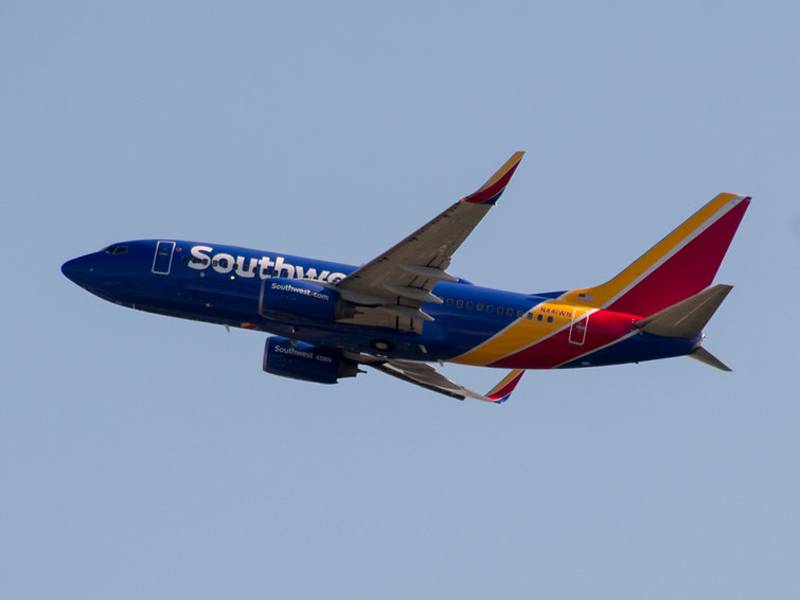
WICHITA, KANSAS, May 11, 2022 — Domestic travelers returned to planes en masse in 2021, but airlines struggled to deliver them, and their bags, to their destinations on time, according to the annual Airline Quality Rating released today by Wichita State University.
Across the industry, fewer planes arrived on time, more baggage was mishandled, and more passengers with booked tickets were bumped from their flights, AQR researchers Dr. Dean Headley and Dr. Brent Bowen found. While the number of complaints filed with the Department of Transportation dropped dramatically from 2020 — when many customers wanted COVID-related refunds — total complaints remained higher than average.
This all happened as the total number of domestic passengers rose by 83 percent, from 295 million in 2020 to 540 million in 2021. But the number of travelers will likely continue to rise closer to the 790 million passengers in 2019. And that could bring problems.
“Within the industry, there is a lot of talk about the airlines being back from the pandemic, but performance was worse in three of the four major indicators,” said Headley, emeritus associate professor of marketing at the W. Frank Barton School of Business at Wichita State University. “We have the history to show that as passenger volume rises, so do performance problems. It could take another two or three years for airlines to address these issues.”
Why did airline performance decline? Staffing and plane inventory are two key problems, according to Headley.
“Airlines want to hire people but they have not been able to do it quickly,” Headley said. “The pandemic forced airlines to lay off pilots as well as baggage handlers and gate agents. Many of those folks took other jobs and they aren’t coming back.”
The pilot shortage has a few causes, Headley said. Some older pilots decided to retire after they were laid off. Some left commercial aviation for growing companies providing private plane service. And many pilots who fly regional routes on smaller planes don’t have the qualifications to fly larger planes used on major domestic routes. There are no shortcuts to getting a pilot the flying hours to move up.
Many baggage handlers and other less specialized employees moved to other industries after they were laid off.
“There are other job options in the same pay range that don’t require working outside in all weather,” Headley said.
Many airlines also put planes into storage during the pandemic. It takes several months to put a plane back in service, which makes it difficult to keep up with the increasing demands for more flights, Headley said. A weather delay, especially in the northeast, or a computer glitch, have a ripple effect, causing issues for two or three days because airlines have such a small margin for error.
Now in its 32nd year, the AQR originated at WSU’s Barton School and ranks as the premier statistical study of major airline performance in the U.S. An objective comparison of airline quality, it is the nation’s longest-running study of its kind. Data from the U.S. Department of Transportation are instrumental in informing the analysis.
An electronic version of the full report, with details on each airline, is available at https://www.wichita.edu/aqr.
Inside this year’s rating
Below is the 2021 ranking of the nation’s largest 10 airlines, according to the Airline
Quality Rating, with the 2020 ranking in parentheses:
1. Southwest (1)
2. Hawaiian (9)
3. Delta (3)
4. Allegiant (2)
5. Alaska (4)
6. United (8)
7. Frontier (10)
8. JetBlue (6)
9. American (7)
10. Spirit (5)
On-time performance
Hawaiian Airlines had the best on-time performance (90.1%) for 2021.
Allegiant had the worst on-time performance (68.3%) for 2021.
Only two airlines improved their on-time arrival performance in 2021. Five of the ten airlines rated had an on-time arrival percentage over 80 percent. On-time for 2021 by the industry was 79.1 percent compared to 83.6 percent in 2020.
Involuntary denied boardings
Involuntary denied boarding includes the number of passengers who hold confirmed reservations and are involuntarily denied boarding on a flight that is oversold, and whose flight departs without them on board. Frontier had the highest involuntary denied boardings rate at 0.95 per 10,000 passengers.
Allegiant, Delta, Hawaiian, and United had the lowest involuntary denied boarding rates at 0.00 per 10,000 passengers.
Allegiant, Delta, Hawaiian, United, and JetBlue (0.02) are clearly the industry leaders in avoiding denied boarding incidents. Industry performance was noticeably worse in 2021 (0.17) per 10,000 passengers than it was in 2020 (0.08).
Baggage handling
Allegiant had the best baggage-handling performance (1.74 mishandled bags per 1,000 checked bags) of all airlines.
American had the worst baggage-handling performance (8.52 mishandled bags per 1,000 checked bags) of all airlines.
The mishandled baggage rate for the industry changed from 3.96 per 1,000 checked bags in 2020 to 4.97 per 1,000 checked bags in 2021.
Consumer complaints
Delta had the lowest consumer complaint rate (1.29 per 100,000 passengers).
Spirit had the highest consumer complaint rate (11.45 per 100,000 passengers).
The industry rate for customer complaints per 100,000 passengers decreased from 11.75 in 2020 to 3.44 in 2021. Due to the COVID-19 pandemic, all airlines had higher than normal numbers of customer complaints. Most complaints (32.7%) to the U.S. Department of Transportation were regarding refunds. In 2020 refunds were 82.2% of complaints filed. In 2020 flight problems accounted for 2.7% of complaints and in 2021 accounted for 27.0%, while customer service (7.8% in 2021 and 3.1% in 2020), baggage (5.8% in 2021 and 1.4% in 2020), and reservations, ticketing, and boarding (8.3% in 2021 and 2.4% in 2020) all were of more concern to the flying public.
More about the Airline Quality Rating
As the nation’s longest-running study of airline performance quality, the Airline Quality Rating sets the industry standard, providing consumers and industry watchers a means to
compare performance quality among airlines using objective performance-based data.
The AQR is the premier study in the country based on performance measures. Criteria
included in the report are screened to meet two basic elements: They must be readily
obtainable from published data sources for each airline, and they must be important
to consumers regarding airline quality. The resulting criteria include areas such
as baggage handling, customer complaints, involuntary denied boardings and on-time
arrivals.





